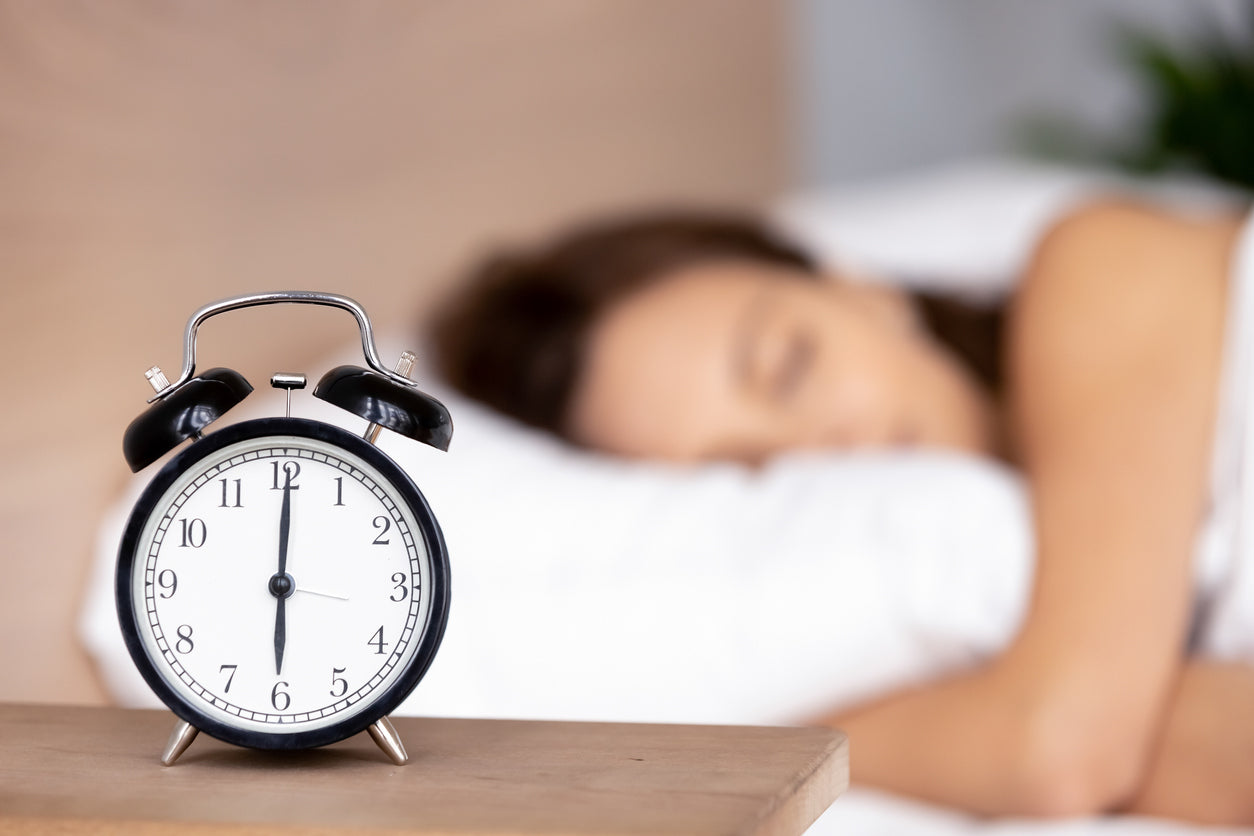was added to your cart
Ditch poor sleep hygiene with these top tips for better sleep

Ditch poor sleep hygiene with these top tips for better sleep

Riya Lakhani ANutr is a registered nutritionist and health writer with a special interest in plant-based nutrition. She has completed a Bachelor’s and Master’s degree in Human Nutrition, and has developed a passion for writing about all things plant-based.
Staring at the ceiling, tossing and turning in bed, or finding yourself feeling wide awake at 2 a.m? If sleep constantly evades you, it could be time to shift your attention towards improving your sleep hygiene.
‘Sleep hygiene’ essentially means “cleaning up” your sleep habits with low-effort practices and rituals to help prepare your mind and body to fall asleep quicker.
Poor sleep hygiene and a lack of sleep can manifest in many different ways. It can often leave you feeling fatigued throughout the day, or you may regularly experience difficulty falling asleep.

If you aren’t getting enough quality sleep each night, it can increase the risk of excessive hunger, a weakened immune system, low mood, fatigue, chronic illnesses such as heart disease or diabetes, and poor cognitive function.
On the other hand, developing good sleep hygiene practices or sleep habits can go a long way for your health. Some benefits of good sleep hygiene include:
- Get sick less often
- Increased energy levels
- Sharper focus and memory
- Feel less stressed and happier
To help support better sleep hygiene, here are some simple practices that you introduce into your routine for that well-rested, refreshed and ready-to-smash-the-day kind of feeling!

Keep your bedroom cool
Turn down the thermostat and open your windows to encourage airflow. Keeping your bedroom cool may help your body naturally settle into and maintain sleep throughout the night.
The best temperature for sleep is around 18.3°C for adults, give or take a few degrees – although this may vary from person to person, so feel free to adjust to the temperature that feels right for you.
Keep your room dark
Darkness is the primary cue that tells your body that it’s time to drift off. That’s because light can influence your body’s internal clock, which regulates sleep and wakefulness. At nighttime, darkness promotes the feeling of sleepiness and boosts the production of melatonin, an important hormone for sleep. So keeping your bedroom as dark as possible can help make falling asleep much easier.

Stick to a regular sleep schedule
Being consistent by going to sleep and waking up at the same time each day – even on weekends – can help improve the quality and quantity of your sleep. Aim to set a bedtime that is early enough for you to get between 7-8 hours of sleep. Also, try to avoid late afternoon naps, as they can throw off sleep at night and interfere with your normal sleep cycle.
Take a Magnesium supplement in the evening
Magnesium is also known as a relaxation mineral, which helps calm both the body and mind before heading to sleep. It has natural calming effects on nerves and muscles and supports sleep by activating neurotransmitters that are responsible for promoting sleepiness.
To help you wind down after a long day and promote a good night’s rest, take two capsules of Magnesium Citrate with or after your dinner.

Relax before bedtime
Make time to wind down before bed. Engaging in a calming activity, such as reading a book, listening to soothing music, practising meditation or journaling, can help calm your body and mind to help you fall asleep more easily.
